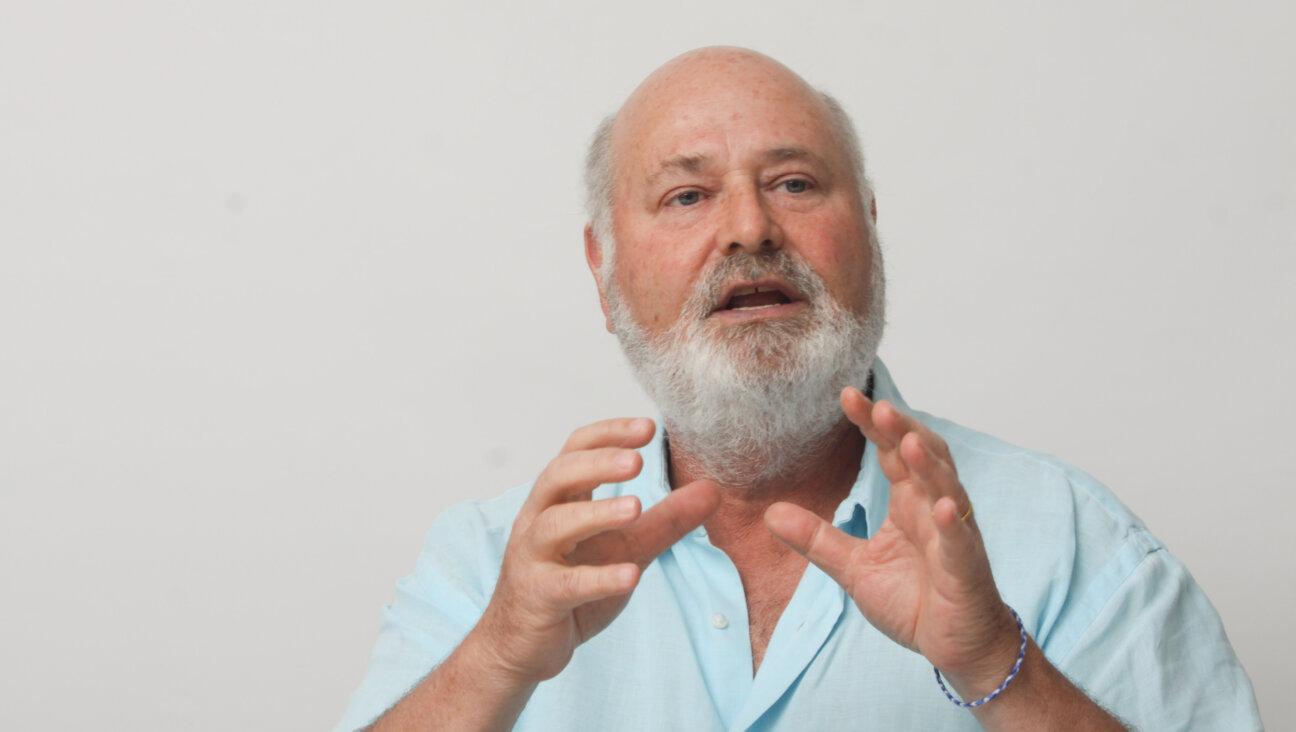Judeo-English, Part III
In response to my previous two columns on “Judeo-English,” Sarah Bunin Benor, a linguist and assistant professor of Jewish studies at Hebrew Union College-Jewish Institute of Religion in Los Angeles, has sent me a paper, not yet published, that she has written on the same subject. In it she concludes (as I did) that such a thing as Judeo-English already exists in America today among Orthodox and ultra-Orthodox Jews, and she gives some interesting examples of it that I overlooked or didn’t mention.
One category ignored by me but not by her is that of ordinary English words that have taken on new meanings in the speech of religiously observant Jews, generally under the influence of Yiddish. Thus, modeled on the Yiddish verb haltn, “ to hold an opinion or take a stand,” we have English “to hold,” used in the sense “to be located in one’s religious observance,” as in a sentence like, “It’s not up to me to judge where they’re holding religiously.” Another case cited by Benor is “to give over” in the sense of “to communicate or give information,” under the influence of Yiddish ibergebn.
Benor also claims that Judeo-English differs grammatically from standard English in more ways than those I spoke of in my column. Apart from the well-known American Jewish “want… should” construction (“I want you should go to the doctor,” instead of standard English “I want you to go to the doctor”), she lists such things as use of the present tense with the adverb “already” to indicate a present perfect tense (“I’m living in New York 15 years already” rather than “I’ve been living in New York for 15 years”), and the interposition of adverbial phrases between transitive verbs and their direct objects (“You’ll be studying all day Torah” instead of “You’ll be studying Torah all day”).
Here, though, I’m a bit skeptical. Are these really permanent features of Judeo-English, or are they rather peculiarities of speech associated with Yiddish-speaking immigrants to America that may have lingered on in some of their offspring but are gradually being phased out in favor of standard English usage? One also has to distinguish between American-born Judeo-English speakers who are also — often primarily — Yiddish speakers and those who are not. The former, though their English is totally fluent, may exhibit what linguists call “interference” — the phenomenon, known to almost everybody who has ever lived in two or more languages at once, whereby features of one language carry over unconsciously into the other and produce in it utterances that are unidiomatic. Only if the same utterances are also found in the speech of speakers free of interference from Yiddish would I consider them part of the Judeo-English future.
Benor also points out a few things that I was unaware of regarding slight differences between Judeo-English and standard English pronunciation. One of these that she has observed in numerous Orthodox communities in the United States, she writes, is the “distinctive non-raised pronunciation of pre-nasal /ae/ in words like ‘candle’ and ‘fan’” — in other words, an articulation of such words halfway in the direction of “kindle” and “fen.” This, too (although the same sound shift has taken place in the English of New Zealand and parts of South Africa), is clearly the influence of Yiddish, which lacks the broad “a” sound of “candle,” a salient feature of a “Yiddish accent” being the inability to produce it.
Apart from the influence of rabbinic Hebrew and Yiddish, Benor maintains, Judeo-English has also been affected by Israeli Hebrew — the conduit for this presumably being not Israeli immigrants to the United States, who mostly tend to be nonobservant, but rather religiously observant American Jews who have spent time in Israel. Of this she gives two examples. One is what she calls “the extra connective ‘so’” — that is, the use of the word “so” to indicate a causal relationship that has already been made clear, as in a sentence like, “Since we Jews don’t have a Temple in Jerusalem nowadays, so we don’t do that.” Such a pleonastic “so” does exist in Israeli Hebrew in the colloquial use of the word az and may be the cause of this phenomenon, although I wouldn’t rule out a Yiddish source for it either.
Benor’s second example, however, is in my opinion mistaken. This is, as she calls it, “the click discourse marker,” the sound conventionally represented in written English by the “tsk” of “tsk, tsk.” Used “to express disapproval, self-repair [that is, self-correction], or hesitation,” this is, she writes, “very common throughout Orthodox communities,” and derives from the Israeli tongue-click that is articulated in the same manner. Yet the Israeli click never indicates disapproval, self-correction or hesitation; it is used for one purpose only — namely, as a way of saying “no” similar to shaking one’s head. Benor’s “click discourse marker,” I suspect, really does come from the “tsk” of “tsk, tsk,” its disapproval of others having been expanded to include the self-disapproval that one feels when one has said something one shouldn’t have, or started a sentence with which one doesn’t know how to proceed .
As Benor’s paper hasn’t been published yet, I can’t refer you to it. Perhaps you can get more information about it from a linguistic Web site that she edits, www.Jewish-languages.org. It’s a site worth knowing about in any case.
Questions for Philologos can be sent to [email protected].















